By: Kim Downey
JULY 21, 2023
If you are a patient, we all are at some point. Undoubtedly, you have experienced some of the difficulties patients face today in getting approved for and receiving medical care in a timely fashion. From scheduling doctor visits to undergoing tests, procedures, obtaining medications, and even surgeries, the process can be challenging.
It’s easy to be tempted to blame your doctor for the long wait times to schedule an appointment, the extended periods spent in the office, the brief amount of time spent with your physician, or their seemingly distracted interaction with the computer instead of with you. These complaints are frequently voiced in conversations with other patients, on social media platforms, and even through reading online physician reviews. I have also personally experienced many of these problems, having dealt with extensive medical issues for a couple of years.
However, patients may not fully realize the extent to which excessive demands placed on physicians have become an immense burden, leading to high levels of burnout and worse. Many doctors are leaving or planning to leave the medical field in the near future. This exacerbates the challenge for patients in receiving timely treatment from physicians who remain actively engaged.
In the past, doctors had more autonomy and were in charge of their own schedules. They could decide how many patients to see and how much personal time to take. However, now, most physicians have essentially been driven out of private practice, feeling like they are held captive by corporatized medicine and trapped on a spinning wheel.
Physicians face intense pressure to produce, often measured by RVUs (relative value units). They have to see more and more patients to stay financially stable, which goes against the desired focus on the doctor-patient relationship shared by patients and doctors alike.
Administrative tasks consume an excessive amount of physicians’ time. They are required to complete extensive box-checking metrics dictated by the electronic medical record (EMR). They also spend significant time on phone calls with insurance companies, requesting prior authorizations for their patients. Furthermore, once they finally get home, doctors spend additional hours updating patient charts, reviewing lab results, and responding to emails and patient portal communications.
As patient presentations become more complex, doctors are left with fewer resources, both in terms of time and support, to provide the necessary care. The lack of time dedicated to thinking about the patient’s condition is a growing concern.
These are undeniably stressful times for physicians and other health care workers. One meaningful way patients can show support is by expressing gratitude during their visits and sending notes of appreciation. A few kind words from a patient can hold significant meaning for a doctor.
“Nothing beats an unsolicited testimonial from a grateful patient. This is why I do what I do!” shared Dr. Susan Baumgaertel. Other physicians also expressed similar sentiments of appreciation:
“Kind words from a patient make my day. I have taught myself to slow down and really listen to compliments from patients because they can shift the entire trajectory of my day. This is why I chose a career in medicine.” – Dr. Michael Hersh
“These are the fuel that keeps us going! We carry a lot of weight helping others feel better, and it definitely lightens the load.” – Dr. Tea Nguyen
“They’re the absolute best! I wholeheartedly agree. It gives you the warm fuzzies.” – Dr. Dana Corriel
“This is one of the things that make it all worthwhile.” – Dr. Robert Kornfeld
“It’s always nice to know that you’re making a difference and that someone went out of their way to express their gratitude.” – Dr. Amruti Borad
“Nothing better! This is why we all went into medicine in the first place – to take care of patients! It always feels great to get a good review or testimonial!” – Dr. Ambrose Panico
Patients and doctors are currently struggling, and it is crucial for both parties to use their voices and find ways to drive positive change in health care. While doctors understand the challenges patients face when navigating the current system, it’s equally important for patients to comprehend the difficulties doctors encounter on their end.
Kim Downey is a physical therapist.

